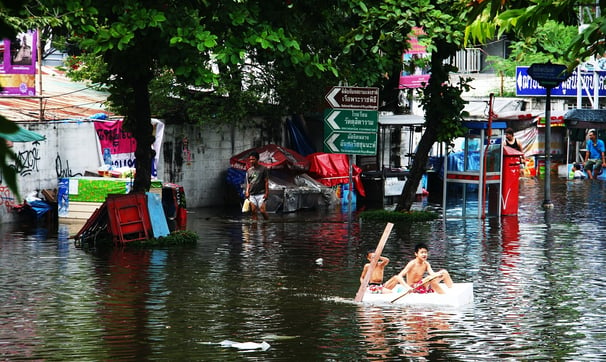Urban Survival: Tips for Preparing in a City Environment
COMMUNITYEDUCATION


Living in a bustling city provides a unique set of challenges when it comes to survival preparedness.
While many people associate survival skills with wilderness settings, being prepared in an urban environment is equally important. From natural disasters to civil unrest, city dwellers must be equipped to handle unexpected situations that can arise at any time. In this blog post, we'll explore some essential tips for urban survival and how to prepare effectively in a city environment.
1. Create a Personal Emergency Plan: Developing a comprehensive emergency plan is crucial for urban survival. Identify potential risks in your area, such as earthquakes, floods, power outages, or civil disturbances. Designate meeting points for your family or loved ones and establish communication channels during emergencies. Having a well-thought-out plan will minimize panic and confusion in high-pressure situations.
2. Build a Bug-Out Bag: A bug-out bag, also known as a "go-bag," is a portable kit filled with essential survival items. Tailor your bug-out bag to suit urban scenarios. Include items such as a flashlight, multi-tool, first-aid kit, spare phone charger, water purification tablets, non-perishable food, and a map of your city. Ensure the bag is easily accessible and ready to grab at a moment's notice.
3. Learn Basic First Aid: In a densely populated city, medical help may not always be readily available during a crisis. Knowing basic first aid skills can make a significant difference in a life-or-death situation. Enroll in a first-aid course to learn how to treat injuries, administer CPR, and manage medical emergencies effectively.
4. Know Your City: Familiarize yourself with the layout of your city. Study the major streets, alternate routes, and safe zones. Understand public transportation systems, evacuation routes, and potential gathering places for emergencies. Knowledge of your city's resources will aid in navigating through chaos and finding essential supplies.
5. Develop Self-Defense Skills: In urban environments, personal safety is paramount. Consider taking self-defense classes to learn techniques for protecting yourself and your loved ones. Awareness of your surroundings and avoiding risky areas can also help prevent dangerous situations.
6. Secure Your Home: Urban dwellings can be vulnerable during crises. Strengthen your home's security by installing sturdy locks, reinforcing doors and windows, and having an emergency communication plan with your neighbors. Consider keeping a small supply of food, water, and essential supplies in your home for emergencies.
7. Network and Community Building: Build relationships with your neighbors and be part of your local community. In times of crisis, a strong support network can be invaluable. Share information, resources, and help each other during difficult times.
8. Stay Informed: Keep yourself updated on local news, weather forecasts, and emergency alerts. Sign up for city-specific emergency notification systems to receive timely information about potential threats. Being informed allows you to react swiftly and appropriately.
Conclusion: Urban survival necessitates a unique set of skills and preparedness measures. By creating a personal emergency plan, building a bug-out bag, learning essential skills, and understanding your city's layout and resources, you can increase your chances of staying safe in the face of adversity. Remember that preparedness is not about fear but about empowering yourself to navigate through unexpected situations confidently. Stay vigilant, stay prepared, and prioritize safety in every aspect of urban living.
